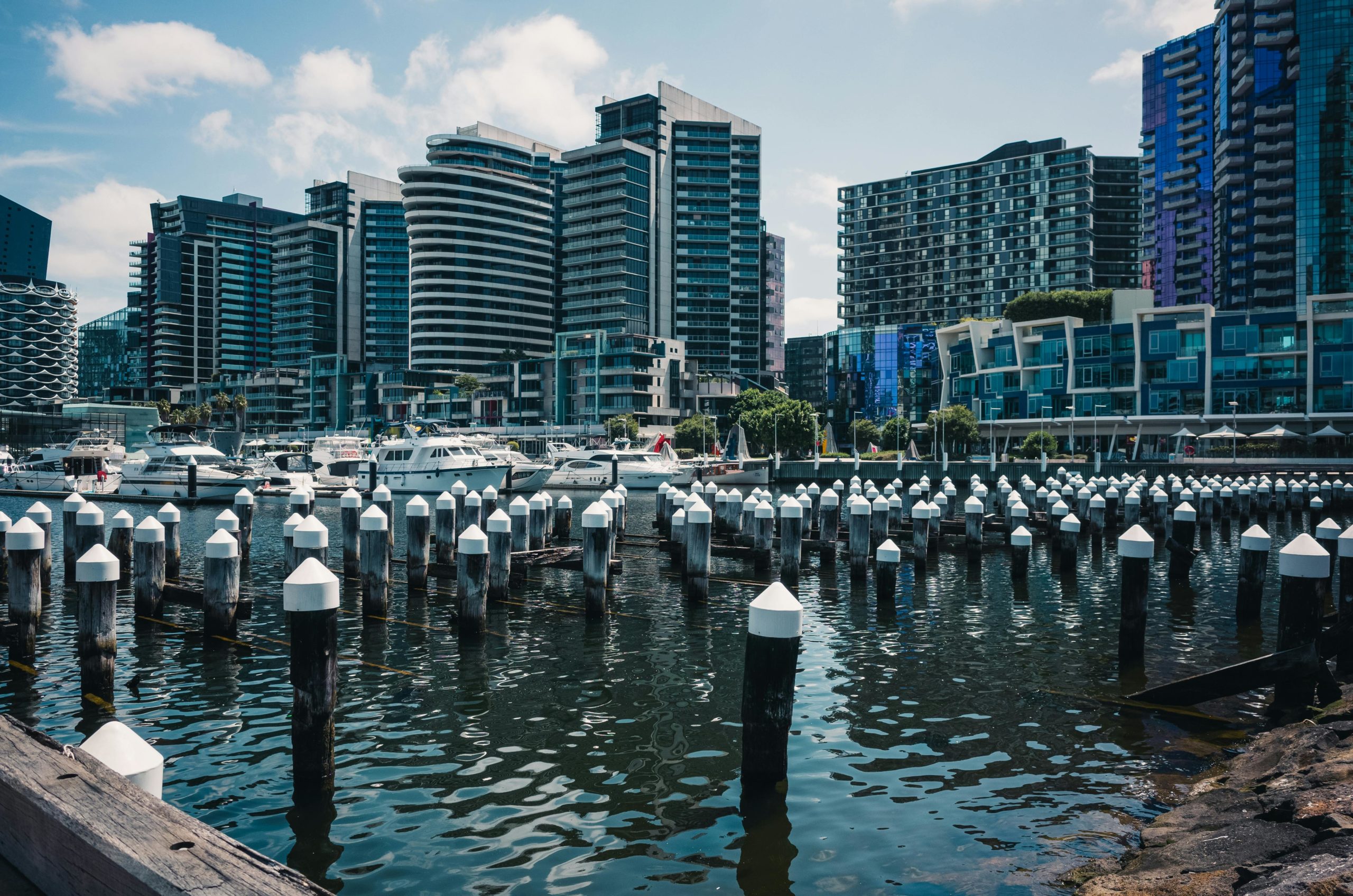Our Guide to Commercial Strata Insurance
Experiencing something like flooding, fire, or theft to your property can be a huge shock to a business. Not only has your livelihood been threatened, but you also have to deal with the financial fallout of the incident as well which can really set you back.
This is why commercial strata insurance is a crucial insurance policy to have. When you own your own business or apartment space in a strata-titled property, you never know what might happen. Insuring yourself against any surprise accidents is the smartest move to make sure you do not suffer any financial difficulties. As a strata insurance broker, we can assist in getting you the best residential and commercial strata insurance policy for your small business or situation.
What is Strata Insurance?
Unlike when you buy a house on its own block of land, when you purchase a property that’s part of a complex, or bigger unit block, it is usually part of a strata title. A strata-titled property means you have individual ownership over your lot (whether this be a private apartment or townhouse, or commercial office space) and shared ownership of the common property like the driveway, foyer, or elevators. The common property is then managed by a legal entity, usually a body corporate or strata company.
Strata insurance is then the insurance that the body corporate is obliged to take out to cover the building, common areas, and common property for both residential and commercial properties. Strata insurance is crucial to help protect their businesses assets and operations. It is a legal obligation to have strata insurance if your property is strata-titled.
Strata insurance differs from traditional business insurance because it does not insure private property, the coverage is strictly kept to shared spaces. Business insurance covers you for a lot more, including property insurance.
Why do you Need Strata Insurance?
Strata insurance is crucial because it covers the cost of repairing or replacing common property in a strata scheme, protecting all owners from significant financial loss.
As strata insurance specialists, we handle a lot of issues on your behalf, such as:
- Property damage to the building and common contents.
- Loss of rent to individual owners; or temporary accommodation costs if owner occupied in the case that the property was deemed uninhabitable.
- Catastrophe insurance if the property was to be impacted by government declared catastrophes.
- Public liability insurance on behalf of the body corporate if any claims are lodged against them for property damage or personal injury due to negligence.
- Office bearers liability coverage for their decisions made on behalf of the owners.
- Voluntary workers compensation covers costs for volunteers that get injured whilst working for the body corporate.
- Machinery breakdown covers costs associated with machinery not working, like elevators or escalators.
- Flood cover handles the costs of flood damage to the common areas.
On top of the above, it is a legal obligation to get strata insurance if you own a strata-titled property in Australia. The specific laws vary from state to state, but they all have a baseline that body corporates are responsible for securing basic strata insurance for their own properties.
Insure Your Strata Property with Morgan Insurance Brokers
As Australia's award-winning insurance broker, we have strata insurance specialists dedicated to ensuring your strata property is fully covered for any situation. Strata situations can be complex and difficult, which is why having a specialist on hand is key.
We handle all customers with the utmost diligence and commitment. When you broker your insurance with us, we work to make sure you get the best insurance coverage possible for your business.
Insuring through Morgan Insurance Brokers means getting award winning, professional service and top-notch insurance coverage in Australia. Contact us today for a free consultation, and our team of skilled professionals can tailor-made the best insurance policy for you.
Tips on How to Protect Your Business From a Cyber Attack
Tips on How to Protect Your Business From a Cyber Attack
During the 2020–21 financial year, over 67,500 cybercrime reports were made, an increase of nearly 13 per cent from the previous financial year. One cybercrime report is made approximately every eight minutes in Australia.
Questions to ask yourself:
What procedures does your business currently have in place if you were to be at the receiving end of a cyber attack?
What would be the impact on your business if you were unable to use your computers for a period of time?
Do you have funds readily available to engage an IT company to handle the recovery of your data, including the forensic and crisis response costs?
Here are 8 essential actions that businesses should take to improve their cyber security procedures
Download Malware/Virus Protection on all devices.
All anti-virus software is not created equal – often it’s a case of you get what you pay for. Consider upgrading from traditional AV software to EDR (Endpoint Detection & Response), which can protect your devices from hacking as well as viruses and malware. This level of software has only recently been affordable at the SME level. And remember – MacOS devices are NOT immune to viruses… They must have protection as well!
Multi-Function Authentication
Activate Multi-Function Authentication (MFA) on all accounts (particularly email/cloud file storage) – MFA is a significant step to protect your accounts from hackers. Without MFA your account can be accessed with only your username and password, and there is any number of ways these can be compromised.
Check that your software is up to date
Check that all your software patches are up to date – suppliers are constantly fixing software vulnerabilities that have been discovered by releasing “patches” or “updates”. Whenever your device is running out-of-date software, it is at risk of attack.
Take Backups of your system
Make sure that you have regular backups of critical files – Backup, backup, BACKUP! Using a cloud storage system for your files does not mean that your files are safe. Always use a secondary backup method.
Password Management System
Use a Password Management system – These make life much easier with the never-ending list of passwords we have these days! They allow you to quickly generate secure passwords without using the same one again and again (a big no-no!), and they also store them securely while allowing easy access from all your devices.
Education
Staff training and education on cyber procedures –
Say you’ve followed all of the above, only to have an employee click a phishing email and open your network up to an attack. Having employees that can spot emails that aren’t genuine can prevent a phishing attack. Businesses should also implement procedures to call clients to confirm bank account details before raising payments. This can prevent money from ending up in the wrong hands.
Cyber Insurance
Purchase a Cyber Insurance policy –
A Cyber Insurance policy can cover the costs of an attack on a business, including the costs of a ransomware request, business Interruption costs, IT costs associated – such as restoration of data, and costs incurred for your client’s personal information being breached, such as regulatory penalties.
Prevention
Prevention is Key! Engage a professional to do an assessment of your Cyber Security. Cyber Insurance is there for you after an attack, but engaging Frontline Cyber Security to conduct a Cyber Security assessment of your IT installation could prevent an attack altogether.
“Jack Richards from FrontLine CyberSecurity – IT expert specialising in protecting and recovering SME’s from cyber security disasters – “If your business relies on your IT system to function, then you cannot afford NOT to have the best support and protection in place”
These are just a few basic (but important) steps to help keep your data safe.
Confused by any of this terminology? If so, then a review of your IT measures is extremely important to prevent an attack on your business.
Hackers attack humans, not computers, and we can make mistakes, no matter how protected our computer is. All it takes is a click of a button for your business to be a victim.
A Cyber Insurance policy can protect you from the financial burden of a cyber-attack.
Safeguard your business by implementing the 8 tips mentioned today.
Let us help you get the best business insurance, contact us today for a quick quote.
Peter Stapleton
Jesse Murphy
Jonathan Ramsay
Lauren was awesome helping us to sort out our insurance incredibly quickly. Called her urgently in the morning as we needed the insurance by 5pm on the same day and she had organised a series of quotes and recommendations within a couple of hours. Would highly recommend her!
Rommo Pandit
I dealt with Lauren and she was fantastic. She's very knowledgable and had all the answers. Would recommend reaching out to her if you need anything insurance related.
Steven Pretty
I have dealt with Lauren from MIB insurance for the last 3 years. Lauren’s attention to detail is incredible and she goes above and beyond in finding the best insurance cover for our business. I can not recommend Lauren highly enough. She has recently insured our second business as well. I recommend MIB to all of my business colleagues.
David Glenister
Lauren has been so helpful, accessible and efficient, helping us to insure our first home!
Maddie Humphrey
The very best insurance services!
Pete Smith
OUR PROCESS
Get a Cyber Insurance quote in just 3 easy steps
Let us do what we do best, so you can get back to doing what you do best. Have trust knowing that we have the knowledge and expertise to provide you with insurance that’s going to protect your assets.
01
Tell us about yourself
Let us get to know you and your business.
02
Choose a tailored policy
Review your personalised and tailored insurance program.
03
Get Insured
Place cover knowing that you’re insured with an approved provider and a dedicated broker on your side.
Commercial Property Owners Insurance
What is Commercial Property Owner’s Insurance?
A Commercial Property Owner’s insurance package is designed to protect the property from unforeseen events, and also to protect the property owner from the financial burden of such events.
Who should insure for Commercial Property Owner’s Insurance?
Commercial Property Insurance is designed to protect Property owners of buildings where they are occupied by commercial tenants.
What does Commercial Property Owner’s Insurance cover?
A Commercial Property Owner’s Insurance policy can cover the below:
Building & Contents
Repair and replacement after insured events
Theft
Cover for your items where there has been a theft, or attempted theft
Liability
Cover for claims brought against you for third party property damage or third party personal Injury
Machinery Breadkown
Covers the costs to repair or replace items with a motor that have broken down; such as aircons. Please note that depending on your tenancy agreement, the tenant may be responsible for this.
Loss of Rent/Business Interruption
Protects your rental income if there was damage to your property which deemed your property uninhabitable and the tenants were no longer obligated to pay rent
Glass
Cover for breakage to internal and external glass. Please note that depending on your tenancy agreement, the tenant may be responsible for this.
Does my tenancy listing impact my insurance premiums?
Your tenants are one of the biggest factors that will affect your insurance policy. If the occupancy has low risk tenants, such as an office, the premium is going to be quite low. If your tenants are deemed high risk, such as a wooden furniture manufacturing business, the premium is going to be high. As we are insuring the building for events such as fire, tenants that have a particularly high fire risk is going to attract higher insurance premiums.
Can I insure my rental income?
Under a Commercial Property Owner’s Insurance policy, you can opt to protect your rental income if your property suffered an unforeseen event which deemed your property uninhabitable, and your tenants were no longer contractually obligated to pay rent.
What events would my rental income be insured?
Under your insurance policy, this would be called “Business Interruption Insurance”. In layman’s terms, it’s more commonly referred to as Loss of Rent. If an event occurred which deemed your property uninhabitable by the insurer, the rental income that your tenant is no longer obligated to pay can be covered by your insurance policy.
Events that would prohibit your tenant from occupying your property could be a result from building damage from fire, weather events, malicious damage, accidental damage, impact, or escape of liquid. This is not an exhaustive list, however these are a list of the most common occurrences.
How long should I insure my rental income for?
Under the Business Interruption section, you have the option to insure for an Indemnity period of your choice. When choosing your indemnity period, you must always consider the worst case scenario. If your property was to burn down, and you had to rebuild it, how long would it take to accomplish this? You must also factor in unexpected delays such as council approvals, material, and labour shortages. All of these factors could extend the duration to rebuild your property. 18 months is usually the minimum recommended period.
When should I update my insurance policy when there has been a tenancy change?
As soon as you have confirmed a new tenant that differs to the previous tenant listed on your insurance policy, you must notify your broker or insurer immediately as there could be changes to the conditions of your insurance policy.
Do I insure my gross annual rentals including GST?
On your insurance policy, you should include GST on your annual rental figure.
Does a Commercial Property Owner’s Insurance policy cover flood?
Flood insurance is not automatically included under a Commercial Property Owners Insurance policy. You have to request this from the insurer.
Does a Commercial Property Owner need Public Liability Insurance?
A Commercial Landlord has an obligation to their tenants to provide a safe, secure property. Failure to do so could potentially see persons injured. For example, a retail store may have a damaged section of flooring that is protruding near the front entry of the store which the commercial landlord has been informed about, yet has not rectified. This is a tripping hazard. The potential for a customer to be injured because of this is high. In this instance, the commercial landlord could be liable for the associated costs if a customer were to suffer an injury. This is because the commercial landlord had become aware of the hazard, yet had neglected to rectify it in a timely manner.
Public Liability Insurance, or more commonly referred to as “Property Owner’s Liability” in this instance, is crucial to protect the property owner from third party propery damage, or personal injury claims brought against them. This can include the tenants, or the tenants clients and customers that enter the premise.
What is not covered under a Commercial Property Owner’s Insurance policy?
The standard exclusions for a Commercial Property Owner’s Insurance policy can include the below:
Damage to the property that happened prior to the insurance being taken out
Flood cover is a standard exclusion, unless otherwise added and approved by the insurer
Wear, tear, deterioration
Maintenance issues
Actions of the Sea
Cover where cover sections have not been selected; for example – you cannot claim on glass breakage if you did not select to insure for glass cover
How much should I insure my Commercial Building for?
It is recommended that you seek professional advice from a builder, architect, surveryer or any other suitability qualified professional to determine an adequate building sum insured.
What happens if I under insure my building to reduce my insurance premiums?
As your Insurance premium is heavily weighted on how much your building is insured for, it could be tempting to insure for less, so your premium is lower. This is a particularly risky move, because unlike home insurance, commercial insurance policies have a “co-insurance” clause. As such, if you choose to insure for a lower amount than the true figure to rebuild your property, you could find yourself having to contribute to the cost to rebuild the property. A co-insurance clause is essentially a penalty for not insuring for an adequate value. Usually, you would need to be insured for at least 80% of the claim value before they start reducing your claim payment.
How can Morgan Insurance Brokers help?
Morgan Insurance Brokers are a team of professional Insurance Specialists that deal in Commercial Property Owner’s Insurance on a daily basis. This means that we are well versed with the risks that you are exposed to as a property owner. We are able to approach our panel of approved insurers to source and tailor an insurance package that is going to protect your property, and rental income for the years ahead.
Peter Stapleton
Jesse Murphy
Jonathan Ramsay
Lauren was awesome helping us to sort out our insurance incredibly quickly. Called her urgently in the morning as we needed the insurance by 5pm on the same day and she had organised a series of quotes and recommendations within a couple of hours. Would highly recommend her!
Rommo Pandit
I dealt with Lauren and she was fantastic. She's very knowledgable and had all the answers. Would recommend reaching out to her if you need anything insurance related.
Steven Pretty
I have dealt with Lauren from MIB insurance for the last 3 years. Lauren’s attention to detail is incredible and she goes above and beyond in finding the best insurance cover for our business. I can not recommend Lauren highly enough. She has recently insured our second business as well. I recommend MIB to all of my business colleagues.
David Glenister
Lauren has been so helpful, accessible and efficient, helping us to insure our first home!
Maddie Humphrey
The very best insurance services!
Pete Smith
OUR PROCESS
Get a Commercial Property Insurance quote in just 3 easy steps
Let us do what we do best, so you can get back to doing what you do best. Have trust knowing that we have the knowledge and expertise to provide you with insurance that’s going to protect your assets.
01
Tell us about yourself
Let us get to know you and your business.
02
Choose a tailored policy
Review your personalised and tailored insurance program.
03
Get Insured
Place cover knowing that you’re insured with an approved provider and a dedicated broker on your side.







